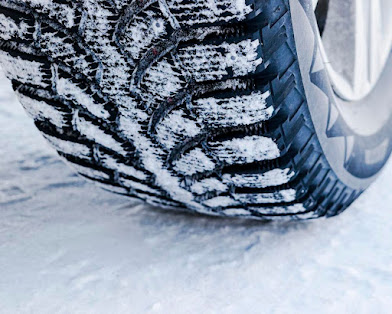Enough Already! 15 Things About Car Tyres We're Tired of Hearing.
Car tyres are an integral part of driving a car and ensure you have a safe and comfortable ride each time. Unfortunately, there are some common misconceptions about car tyres that seem to be stuck in the public consciousness – we’re here to set the record straight! Read on to find out 15 things about car tyres we’re tired of hearing.
1. All Tyres Are The Same: Different types of car tyres have different levels of traction, grip, braking distance, handling and noise reduction capabilities. It's important to understand your needs and choose the right type for your vehicle.
2. Cheaper Tyres Are Better: Just because a tyre is cheaper doesn't mean it's better. While they may be more affordable, cheaper tyres may not last as long and may also give you a poorer driving experience.
3. More Expensive Tyres = Better Quality: It is true that more expensive tyres are generally of higher quality but the most important thing to consider when buying car tyres is your needs. Make sure you get the right type that meets your specific requirements and budget.
4. Tyre Pressure Is Unimportant: It’s essential to keep your tyre pressure at the correct level for optimum performance, fuel efficiency and safety – so don’t ignore it! Keep an eye on this regularly or check with a professional if in doubt.
5. Old Tyres Still Work: Ageing Winter Tyres Fareham can compromise your safety and performance on the road. They may become hard, brittle and less able to perform – to avoid this, replace them when necessary.
6. Tyres Don’t Need To Be Balanced And Aligned: Regular wheel balancing and alignment help to keep your car running smoothly and safely. If you ignore it for too long, you could experience problems with steering or vibration at certain speeds.
7. Bigger Is Better: You should never buy a tyre larger than what is recommended by the manufacturer as it could lead to safety issues or void your warranty. Go with the same size that was originally fitted in order to maintain proper handling and fuel efficiency of your vehicle.
8. Tyres Don’t Require Maintenance: Just like the rest of your car, tyres need maintenance too! You should ensure you rotate them every 5,000 to 8,000 miles and check their pressure regularly.
9. Off-road Tyres Are Not Suitable For On-road Use: While some off-road tyres may perform better in certain conditions than standard on-road tyres, they are designed for off-road use only. Driving with off-road tyres on a regular road could be dangerous as they can cause poor traction and lack of stability at higher speeds.
10. Tyre Tread Depth Is Unimportant: It's important to get familiar with tyre tread depth regulations and to regularly measure the tread depth of your tyres. Deep treads help increase traction and make for a safer drive so it's worth making sure you have enough!
11. Tyres Last For Ever: Make sure you keep an eye on the age and mileage of your tyres in order to ensure they are safe and functioning correctly at all times.
12. It’s OK To Drive With Only Two Tyres: Your car needs four properly inflated tyres in order to perform safely, so never just replace two! Replacing only two could cause serious handling issues as well as put extra stress on the other tyres, making them wear out more quickly.
13. Summer Tyres Are Better For All Seasons: While summer Winter Tyres Fareham may provide better performance and efficiency during warmer months, they are not suitable for winter driving conditions. When temperatures drop below 7°C or when there is snow on the roads, it's best to switch to a set of winter tyres or all-season tyres instead.
14. Brand New Tyres Don’t Need To Be Balanced: It's important to get new car tyres balanced as soon as you get them fitted – this helps even out any minor imperfections in the tyre that could cause vibration while driving.
15. You Can Drive On A Flat Tyre: Driving on a flat tyre is not only extremely dangerous, but it can also cause irreparable damage to your car and the Tyres Fareham itself. If you experience a flat tyre, always pull over and call for assistance rather than trying to drive on it.
16. You Don’t Need To Replace All Four Tyres At The Same Time: It's usually best to replace all four of your tyres at the same time, as doing so will ensure that you have uniform traction and balance in your vehicle – however if you're on a budget then replacing two tyres should be enough (just make sure they are both from the same manufacturer).
Conclusion
Having the correct knowledge about car tyres is essential if you want to get the most out of them and maintain road safety. From understanding regulations to knowing when to replace them, make sure you're informed and up-to-date on all tyre-related matters so that you can take care of your car and yourself while driving!



Comments
Post a Comment